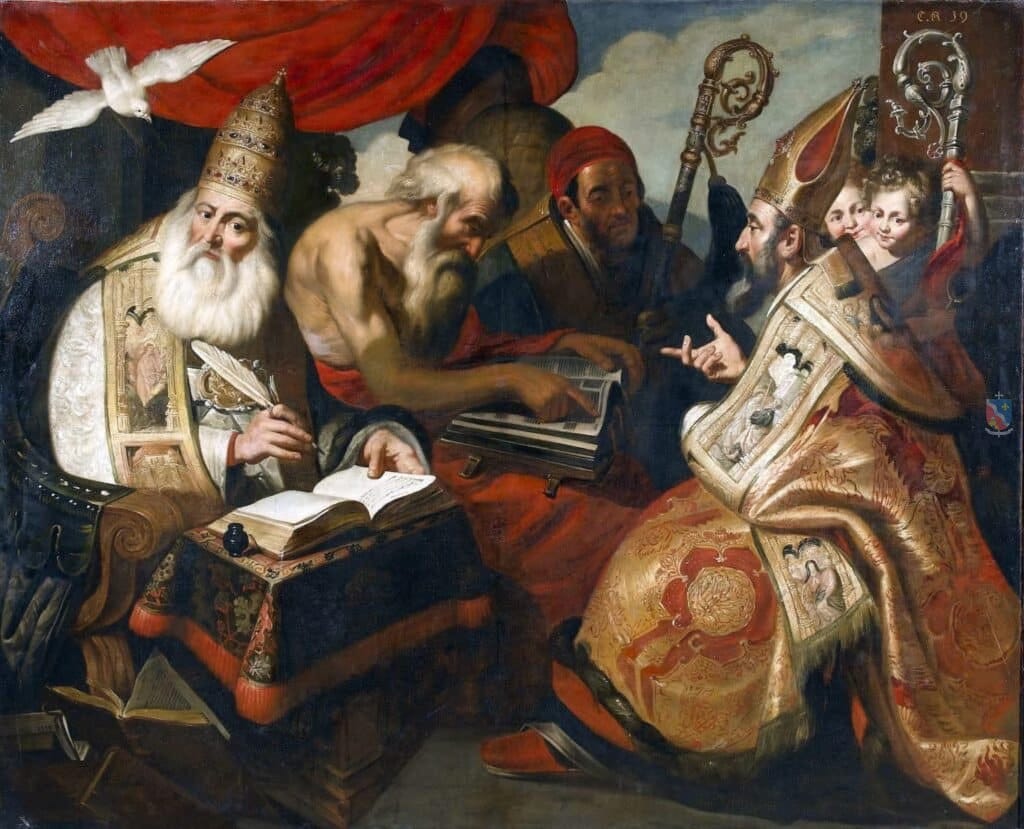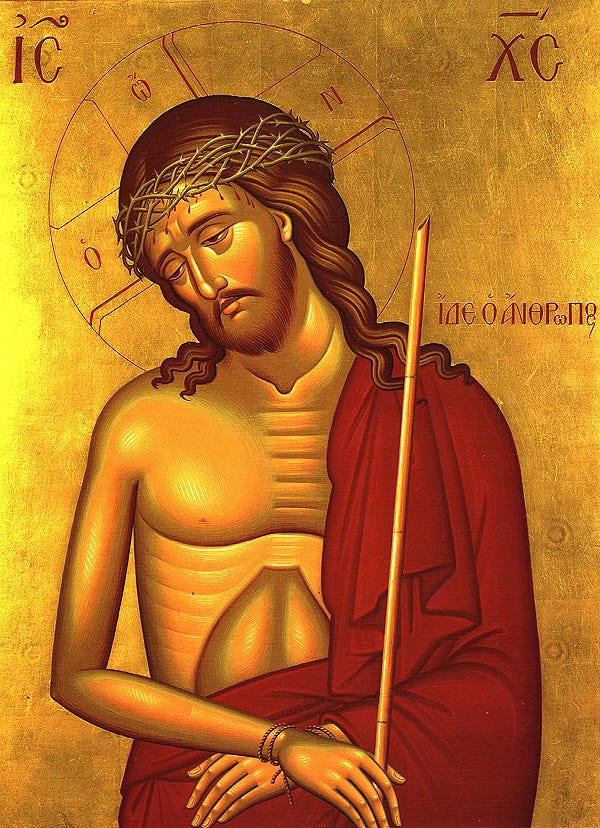We are in the midst of Lent. And the collect of the Mass for the Feria VI infra Hebdomada III in Quadragesima (Usus antiquor) prays:
“Ieiúnia nostra, quǽsumus, Dómine, benígno favóre proséquere: ut, sicut ab aliméntis abstinémus in córpore; ita a vítiis ieiunémus in mente” (O Lord, graciously be with us during this fast, and, we beseech You, help our spirit to abstain from sin as our body fasts from food).
To fast and abstain. Again. Why so much insistence? It has to do with Paradise, and our transformation in the likeness of Christ. Our deification.
What was the first commandment given by God to Adam in Paradise? To fast and abstain. Saint Basil says so: “fasting was ordained in Paradise, (…) the first commandment in this sense was delivered to Adam. (…) ‘You shall not eat’ is a law of fasting and abstinence” (cf. Sermo de jejunio: PG 31, 163, 98)
Why Jesus went to the desert? to Fast. Not only to give us example, not because he needed it “Him, who knew no sin” (2 Cor 5,21). It is Adam returning to Paradise and taking us to Heaven: ‘It is convenient to remember how the first Adam was expelled from paradise to the desert, so that you may see how the second Adam comes from the desert to Paradise’ (St. Ambrose of Milan, In Lucam IV,7).
God has given as also this gift from Paradise: fast and abstinence, he has given Penance and has restored in the New Law to seek the Bridegroom: “But the days will come, when the bridegroom shall be taken away from them, then shall they fast in those days” (Lk 5,35). The Tree of Life, whose path was hidden from the eyes of man (cfr. Gen 3,24) has appeared again: “Ecce lignum Crucis, in quo salus mundo pepéndit” (Yonder the Cross is, yonder the Tree whence hung the world’s salvation).
The icon of the Bridegroom
Let us fast and abstain to eat the Bridegroom, the Fruit of the Tree of Life, our Lord Resurrected King.





